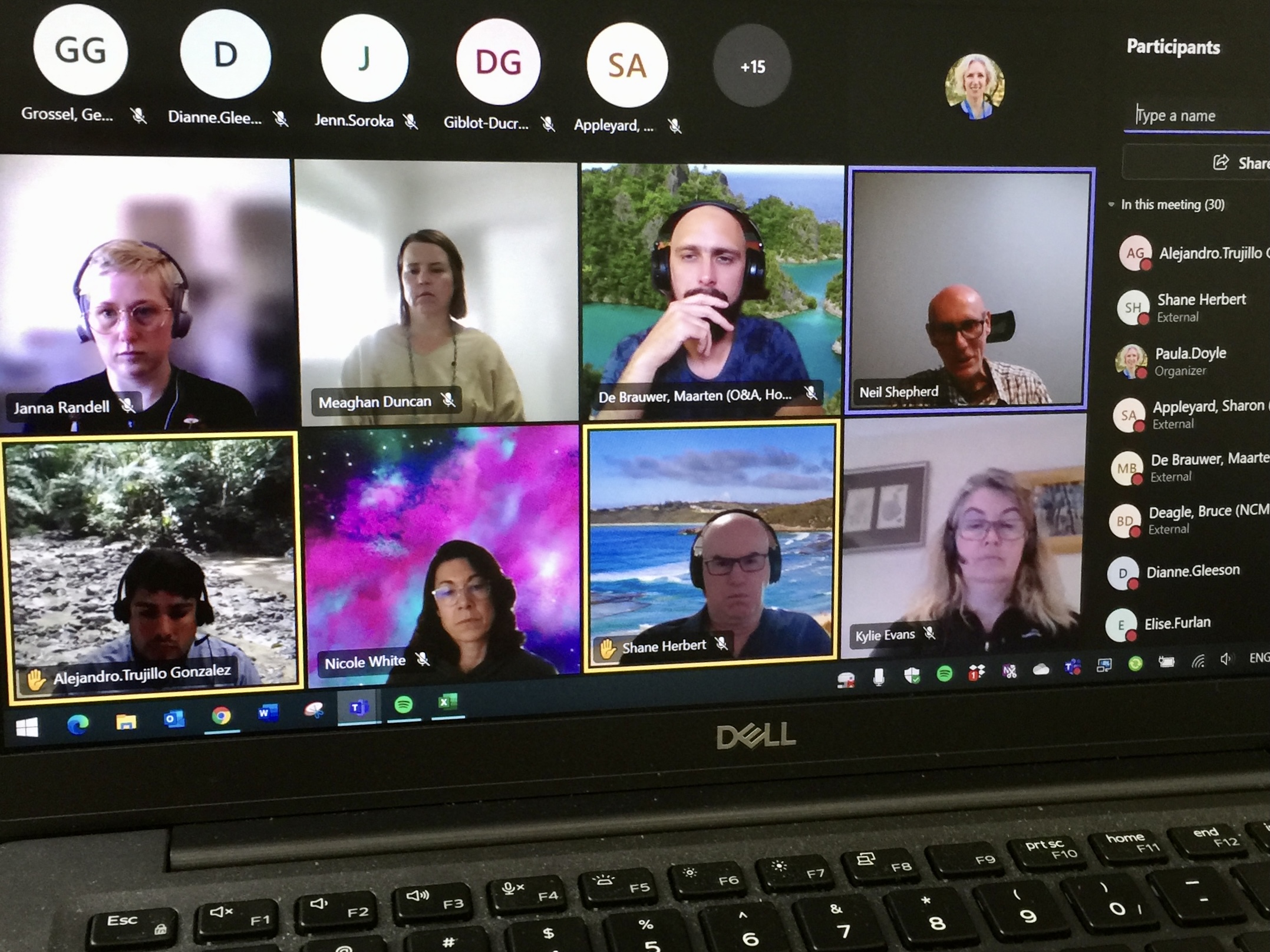Developing best-practice for eDNA in monitoring and management

DNA fragments shed by plants or animals into their environment can be sequenced from samples of water, soil, or air. Using this environmental DNA (or eDNA), species can be identified, and their distributions mapped without actually seeing or collecting them.
These accurate, fast and cost-effective measurements have revolutionised the surveying and monitoring of biodiversity and surveillance of pests. However, to be a reliable tool that can inform management decisions, stringent standards to assess sample quality, reproducibility and reliability of results are required.
The EcoDNA team at the University of Canberra are developing guidelines to present to Department of Agriculture, Water and the Environment next year. The aim is to produce a document that will outline minimal quality requirements to develop and validate environmental DNA (eDNA) and RNA (eRNA) molecular assays and standard protocols for operational use in Australia and New Zealand.
On Tuesday 26th and Wednesday 27th of October, leading eDNA researchers and practitioners gathered online for a Mini Symposium and Workshop to discuss the National eDNA test Validation Guidelines and the development of National Environmental DNA Test Protocols (NETPs).
Over 100 people attended the opening mini symposium and heard talks from Alejandro Trujillo-Gonzalez UC on “National environmental DNA assay validation guidelines and protocol development”, followed by Geoff Grossel from the Department of Agriculture, Water and the Environment who discussed “Government expectations & the eDNA reference network”. Jodie Van de Kamp (CSIRO) spoke about “eDNA standardisation and the OPBS (Ocean Best Practices System) framework”. Mark Sykes from Fapas Proficiency Testing in the UK gave a talk on “Standardisation & proficiency testing of eDNA: lessons to date” followed by “Best practices & minimum quality assurance” by Nicole White from Curtin University.
The proceeding workshop to discuss the draft guideline had 50 participants from a wide cross-section of Government departments, other stakeholders and academics from Australia and New Zealand. This was the first in a series of workshops to develop and gather feedback on the guidelines. Further workshops (hopefully in person!) are planned for early 2022 before delivery of the National eDNA test Validation Guidelines and National Environmental DNA Test Protocols to DAWE.
